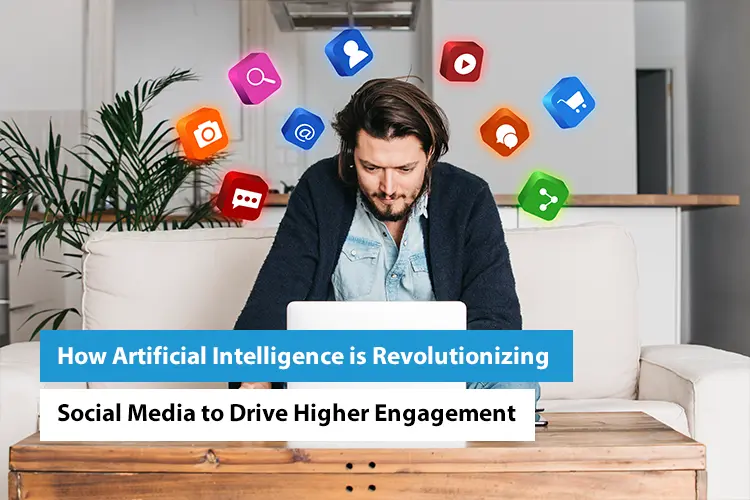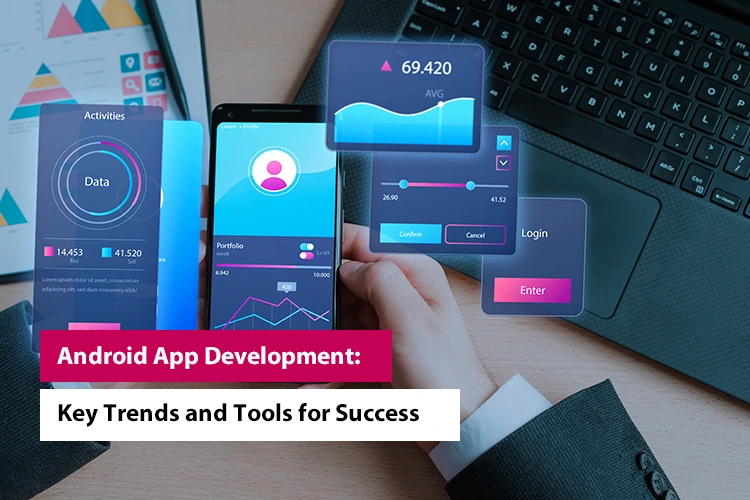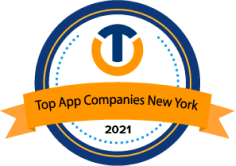How Artificial Intelligence is Revolutionizing Social Media to Drive Higher Engagement

Have you ever wondered how social media platforms seem to know exactly what content you want to see, even before you do? Or how they manage to keep you endlessly scrolling through your feed, mesmerized by a stream of captivating posts and videos? The answer lies in the powerful integration of Artificial Intelligence (AI) into social media algorithms.
In today’s digital age, social media has become more than just a means of communication—it’s a virtual ecosystem where billions of users worldwide connect, share, and engage with content daily. According to Statista, as of 2021, there were approximately 4.48 billion active social media users globally, with an average of 145 minutes spent per day on social networking platforms. With such staggering numbers, it’s no wonder that social media has become an indispensable part of our lives.
However, what truly sets the modern social media landscape apart is the infusion of AI technology, which has revolutionized the way users interact with content and each other. From personalized recommendations to automated content creation and real-time analytics, AI-powered data analytics features are reshaping the user experience and driving unprecedented levels of engagement.
In this blog, we’ll embark on a journey into the realm of AI in social media, exploring its transformative impact and unveiling ten best practices for leveraging AI to enhance engagement. Whether you’re a social media marketer seeking to optimize your strategies or an avid user curious about the magic behind your favorite platforms, join us as we uncover the secrets of AI-driven engagement in the digital age.
Understanding AI in Social Media

Artificial Intelligence (AI) is revolutionizing social media in myriad ways, fundamentally altering how users interact with platforms, consume content, and engage with each other. At its core, AI encompasses a diverse set of technologies that enable machines to mimic human intelligence, analyze vast amounts of data, and make data-driven decisions. In the context of social media, AI plays a pivotal role in enhancing user experiences, optimizing content delivery, and driving higher levels of engagement.
-
Personalized Content Recommendation
One of the most prominent applications of AI in social media is personalized content recommendation. AI algorithms analyze user data, including browsing history, interactions, and preferences, to deliver tailored content recommendations. By understanding individual user behavior and interests, social media platforms can surface relevant content, increasing the likelihood of engagement. For example, platforms like Facebook and Instagram use AI to suggest posts, articles, and videos based on users’ past interactions and interests, creating a personalized feed that keeps users engaged and entertained.
-
Chatbots for Instant Customer Support
AI-powered chatbots have become ubiquitous on social media platforms, offering instant customer support and assistance. These chatbots use natural language processing (NLP) algorithms to understand user queries and provide relevant responses in real time. Whether it’s answering product-related questions, resolving issues, or directing users to appropriate resources, chatbots streamline the customer support process, enhancing user satisfaction and engagement. Brands and businesses leverage chatbots on platforms like Twitter and Facebook Messenger to provide round-the-clock support, ensuring that users receive prompt assistance whenever they need it.
-
Sentiment Analysis for Brand Perception
AI-driven sentiment analysis tools monitor social media conversations to gauge public sentiment toward brands, products, or campaigns. By analyzing text data and identifying key emotional cues, these tools can determine whether online discussions are positive, negative, or neutral. Understanding sentiment allows brands to assess their reputation, identify potential issues or opportunities, and tailor their communication strategies accordingly. For instance, companies use sentiment analysis to track customer feedback, address concerns, and maintain a positive brand image, ultimately driving higher levels of engagement and loyalty.
-
Automated Content Creation
AI-powered tools enable automated content creation, generating text, images, and videos based on predefined parameters and user inputs. These tools leverage machine learning algorithms to analyze existing content trends, understand user preferences, and produce compelling material at scale. Whether it’s generating social media posts, creating graphics, or editing videos, AI-driven content creation streamlines the production process, ensuring a consistent flow of engaging content for audiences. Platforms like Canva and Lumen5 utilize AI to empower users to create professional-quality content with minimal effort, enabling businesses and creators to captivate their audiences and drive engagement.
-
Real-time Analytics for Performance Optimization
AI-powered analytics tools provide real-time insights into content performance, audience demographics, and engagement metrics. By analyzing data from social media platforms, websites, and other sources, these tools help marketers understand what content resonates with their audience, which channels drive the most engagement, and how to optimize their strategies for maximum impact. For example, social media management platforms like Sprout Social and Hootsuite offer AI-driven analytics dashboards that enable users to track key performance indicators, identify trends, and make data-driven decisions to enhance engagement and drive results.
-
Predictive Modeling for Trend Forecasting
AI algorithms leverage predictive modeling techniques to analyze historical data and identify patterns, enabling social media platforms to forecast future trends and anticipate content virality. By understanding the factors that contribute to the success of viral content, platforms can proactively identify emerging trends, create timely and relevant content, and capitalize on opportunities to drive engagement. For instance, platforms like TikTok and Twitter use AI-driven algorithms to predict which videos or tweets are likely to go viral based on factors such as user engagement, sharing behavior, and content attributes, enabling creators and brands to optimize their content strategy for maximum impact.
-
Image and Video Recognition for Content Moderation
AI-powered image and video recognition technologies play a crucial role in content moderation on social media platforms. These technologies use computer vision algorithms to automatically detect and filter inappropriate or harmful content, such as nudity, violence, or hate speech. By analyzing visual content in real-time, platforms can ensure a safe and positive user experience, mitigate potential risks, and maintain community standards. For example, platforms like YouTube and Instagram use AI-driven content moderation systems to identify and remove violating content, safeguarding users from harmful or offensive material and fostering a supportive online environment conducive to engagement.
-
Social Listening for Audience Insights
AI-powered social listening tools monitor conversations across various social media channels, providing brands with valuable insights into audience preferences, interests, and trends. By analyzing text data, hashtags, and mentions, these tools help marketers understand what topics are trending, how users perceive their brand, and what competitors are doing. Armed with these insights, brands can tailor their content and messaging to resonate with specific demographics, engage in relevant conversations, and build meaningful connections with their audience. Platforms like Brandwatch and Talkwalker leverage AI to analyze social media data at scale, enabling brands to gain actionable insights and drive engagement through targeted and relevant communication strategies.
-
Automated Campaign Optimization
AI algorithms optimize advertising campaigns by analyzing performance data, adjusting targeting parameters, and allocating budgets to maximize return on investment (ROI). By leveraging machine learning algorithms, platforms can automate the process of campaign optimization, ensuring that ads reach the right audience at the right time and drive desired outcomes, such as clicks, conversions, or brand awareness. For example, advertising platforms like Facebook Ads and Google Ads use AI-driven algorithms to optimize ad delivery, test different creatives and targeting options, and allocate budgets based on performance data, enabling advertisers to achieve their campaign objectives and drive engagement effectively.
-
Enhanced User Experience with AI-driven Features
Social media platforms integrate AI-driven features to enhance user experience and encourage active participation. These features leverage technologies such as augmented reality (AR), personalized stickers, and interactive polls to create immersive and engaging environments that keep users entertained and invested in the platform. For example, platforms like Snapchat and Instagram offer AR filters and effects that allow users to enhance their photos and videos with virtual overlays, while platforms like Twitter and Facebook enable users to create and share interactive polls and quizzes with their followers, fostering engagement and interaction.
Using AI on Social Media to Drive Engagement: 10 Best Practices

Utilizing AI to drive higher engagement on social media requires a strategic approach that leverages the capabilities of artificial intelligence to understand user behavior, personalize content, and optimize campaigns. Here are ten best practices for effectively using AI to enhance engagement on social media platforms:
-
Personalized Content Recommendations
Implement AI algorithms to analyze user data and deliver personalized content recommendations tailored to individual preferences, browsing history, and interactions. By understanding each user’s interests and behavior, you can curate a customized feed of relevant content, increasing the likelihood of engagement and user satisfaction.
-
Chatbots for Instant Interaction
Integrate AI-powered chatbots into social media channels to provide instant interaction and support to users. These chatbots use natural language processing (NLP) to understand user queries and deliver timely responses, whether it’s answering questions, providing information, or guiding users through processes. By offering instant assistance, chatbots enhance user experience and encourage ongoing engagement.
-
Sentiment Analysis for Audience Insights
Leverage AI-driven sentiment analysis tools to monitor social media conversations and gain insights into audience sentiment towards your brand, products, or campaigns. By understanding the emotional tone of user interactions, you can identify opportunities to address concerns, amplify positive feedback, and tailor your messaging to resonate with your audience, ultimately driving higher engagement and brand loyalty.
-
Automated Content Creation
Utilize AI-powered tools to automate content creation processes, generating text, images, and videos based on predefined parameters and user inputs. By analyzing trends and user preferences, AI can help you create compelling and relevant content at scale, ensuring a steady stream of engaging material to captivate your audience and drive interaction.
-
Real-time Analytics for Performance Optimization
Deploy AI-powered analytics tools to gain real-time insights into content performance, audience demographics, and engagement metrics. By analyzing data from social media platforms, you can identify what content resonates most with your audience, which channels drive the most engagement, and how to optimize your strategies accordingly. Use these insights to refine your approach and maximize engagement.
-
Predictive Modeling for Trend Forecasting
Utilize AI algorithms to develop predictive models that forecast future trends and anticipate content virality. By analyzing historical data and user behavior patterns, AI can help you identify emerging trends and topics of interest, allowing you to create timely and relevant content that resonates with your audience and drives engagement.
-
Image and Video Recognition for Content Moderation
Deploy AI-powered image and video recognition technologies to automatically detect and filter inappropriate or harmful content on social media platforms. By proactively identifying and removing violating content, you can maintain a safe and positive user experience, fostering trust and encouraging ongoing engagement within your community.
-
Social Listening for Audience Engagement
Leverage AI-powered social listening tools to monitor conversations across social media channels and gain valuable insights into audience preferences, interests, and behavior. By actively listening to what your audience is saying, you can identify opportunities to join relevant conversations, address user needs, and create content that resonates with your audience, driving higher levels of engagement and interaction.
-
Automated Campaign Optimization
Implement AI algorithms to optimize advertising campaigns by analyzing performance data, adjusting targeting parameters, and allocating budgets to maximize ROI. By automating the campaign optimization process, AI can help you ensure that your ads reach the right audience at the right time, driving desired outcomes such as clicks, conversions, or brand awareness.
-
Enhanced User Experience with AI-driven Features:
Integrate AI-driven features such as augmented reality (AR) filters, personalized recommendations, and interactive polls to enhance user experience and encourage ongoing engagement. By offering innovative and interactive features, you can keep users entertained and invested in your platform, driving higher levels of engagement and interaction over time.
Conclusion
Artificial Intelligence is undoubtedly transforming the landscape of social media, empowering platforms to provide personalized experiences, optimize content creation, and drive engagement to new heights. By embracing AI technologies in businesses can unlock a world of possibilities, from enhancing user experiences to forging deeper connections with their audience. As we navigate the ever-evolving realm of social media, it’s imperative to recognize the pivotal role of AI in shaping the future of digital communication and interaction.
For businesses looking to harness the power of AI in their social media endeavors, partnering with a trusted technology partner like Imenso Software can be the key to unlocking success. With our expertise in AI-driven solutions, we can help you navigate the complexities of social media engagement, optimize your strategies, and achieve your goals. Together, let’s embrace the future of social media with AI at the forefront, driving meaningful interactions and fostering a vibrant online community.
We’re honored to mention that our efforts have been recognized by renowned B2B review and research platforms such as GoodFirms, Clutch, MirrorView, and many more.
Want more information about our services?
Similar Posts

Can Laravel be used for building Enterprise Apps?
Laravel has emerged as one of the most popular PHP frameworks for building enterprise apps. There are several reasons that contribute to the popularity of the Laravel framework for enterprise apps. Many of the large businesses found it suitable for building their enterprise apps....

Advantages of Using ASP.NET for Web Development
ASP.NET Development company can be an incredibly useful tool when you’re developing web applications. This tool provides a programming model as well as a structure for software. Using ASP.NET an easy way for you to build programs for the PC or mobile devices. These are some of the perks you’ll be able to enjoy if […]...

Android App Development: Key Trends and Tools for Success
Have you ever wondered what makes some Android apps an overnight sensation, while others struggle to gain recognition in the crowded marketplace? The secret lies in the dynamic world of Android app development, where creativity, innovation, and the right tools can transform a mere concept into a user’s everyday essentials. In this ever-evolving ecosystem, developers […]...









